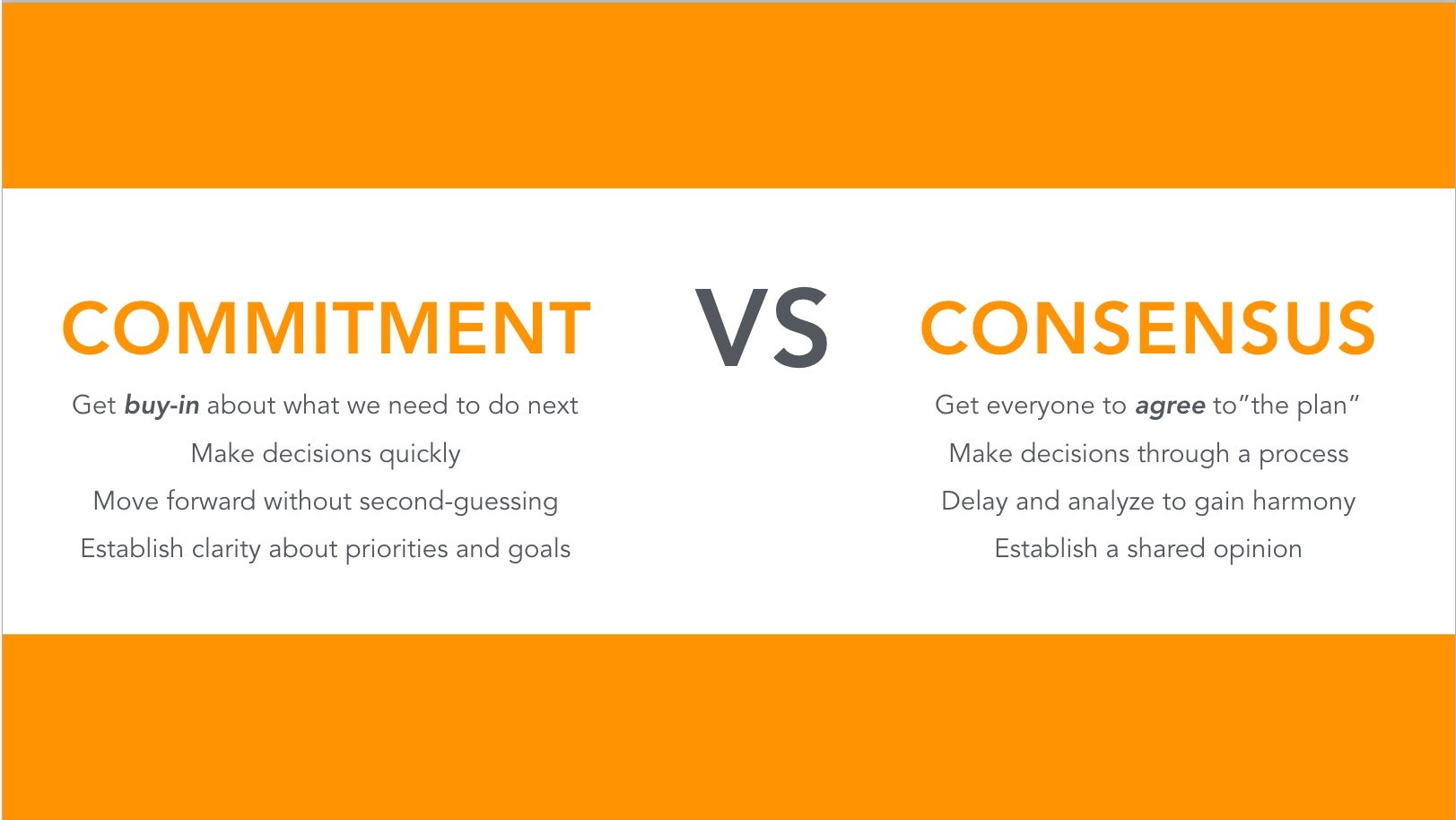Working on an innovation team is hard. Anyone who says different is just flat wrong.
Not only does innovation work inherently mean you don't already know the answer; the complex dynamic of working on a team searching "in the wilderness" for answers to questions that likely haven't been asked before makes for a lethal one-two punch.
In the midst of these challenges, most teams chase consensus. They default to trying to build general agreement for every move the team will make. We democratize, avoid conflict, and attempt to create harmony with our teammates trying to give everyone an "equal voice" on our team. Sounds nice, right?
Consensus means:
- Attempting to get everyone to agree to all aspects of the plan
- Making decisions through a process
- Overanalyzing and delaying action to gain harmony
- Establishing a shared opinion
But consensus slows a team down, creates unsaid opinions, harbors ill-will, and ultimately breeds division. Moreover, we spend hours and hours inside our meeting rooms trying to build consensus, which inherently takes us away from the most important aspect of innovation work – being outside our building learning with our customers.
Great teams learn to prioritize commitment over consensus.
Commitment means:
- Getting buy-in about what you need to do next
- Making decisions quickly
- Moving forward without second-guessing
- Establishing clarity about priorities and goals
Learning how to "go small" and commit to what you need to learn next, how you're going to go about learning it, and who will be responsible for what is critical to being an effective innovation team.

Here are some simple questions to help your team prioritize commitment in your next meeting:
- What, specifically, do we need to learn next? Can we commit? Why, or why not?
- What, specifically, will we do to learn? Can we commit? Why or why not?
- Who (name names) will do What (name tasks)? Can we commit? Why or why not?
- Ready? Set...Go!
